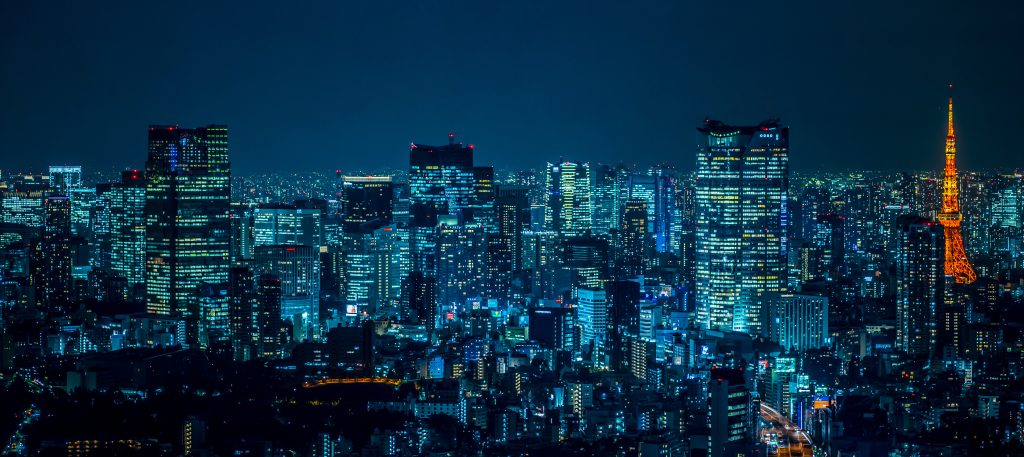To achieve carbon neutrality, countries must navigate geopolitics and energy together
Shin Hosaka is Japan’s vice minister of international affairs at the Ministry of Economy, Trade, and Industry. This essay is part of the Global Energy Agenda.
Energy security has been an age-old challenge since long before the Industrial Revolution. Now, amid this context, a new challenge of dealing with environmental issues has arisen. A few years ago, the narrative around the energy transition toward net-zero emissions followed a simplistic trajectory; it gave the impression that the world would seamlessly transition from the constraints of commodities such as oil and natural gas, embracing the geopolitical benefits that such a move would entail. However, as I have seen in my tenure as the commissioner of the Agency for Natural Resources and Energy and as the vice minister of Japan’s Ministry of Economy, Trade and Industry (METI), this energy transition is far more intricate. Energy dynamics, replete with their occasional turbulence, still hold sway over global geopolitics. In this context, I believe that multilateralism is a key driving force to encourage energy transitions toward net zero.
Policymakers must face this reality head-on, realizing a green society necessitates the formulation of new policies and global collaboration.

I believe that multilateralism is a key driving force to encourage energy transitions toward net zero.
I wish to shed light on Japan’s perspective leading up to the Group of Seven (G7) Ministers’ Meeting on Climate, Energy, and Environment—which Japan hosted in April 2023—and the first-ever LNG Producers-Consumers Conference, which we co-hosted with the International Energy Agency (IEA) in July.
The significance of these meetings lies in their timing, held amid what the IEA called the world’s “first truly global energy crisis.” Concurrently, these events took place at a time when forces are pulling apart the worlds of the haves and have-nots. Furthermore, I believe these deliberations will spark conversations about the world’s approach to both COP28 and the energy crisis at hand.
The issues surrounding energy are a common challenge for the planet’s 8 billion people. Japan’s journey to the G7 Ministers’ Meeting on Climate, Energy, and Environment began with the conviction that the outcomes of the G7 should not merely benefit its member states or other developed nations. Instead, these outcomes should also foster collaboration with its Asian neighbors and countries from the Global South. The essence of energy, especially in these critical times, demands that developed nations must confront their global responsibilities rather than scramble for resources.
To clarify any misconceptions, the Japanese government remains a staunch supporter of a carbon-neutral world. However, the path to carbon neutrality should be tailored to individual countries’ unique circumstances, embracing various pathways and being inclusive of all technologies, which is one of the important messages of the G7 in 2023.
Japan, having faced an energy crisis nearly fifty years ago, advanced its technological development vigorously. Solar power, now ubiquitous in our country, owes its commercial success to Japan’s relentless research and development. We not only learned from the crisis, but also significantly contributed to the world’s green transition. Our sights are now set on being frontrunners for hydrogen technology, carbon capture utilization and storage, and other clean energy solutions, and we’re actively offering extensive technological support to those seeking it.
It is also important to address the crucial topic of enhancing liquefied natural gas (LNG) and natural gas security, often regarded as ground zero of the energy crisis. The G7 Ministers’ Meeting on Climate, Energy, and Environment highlighted the need for investment to prepare for potential gas shortages. Recognizing the importance of dialogue between producing and consuming countries, the LNG Producer-Consumer Conference was convened in Tokyo in July. Japan proposed enhancing the IEA’s capabilities in the natural gas and LNG sectors, and announced a new partnership to address methane, a pressing concern for cleaner LNG and natural gas utilization. To reiterate, Japan is not advocating actions contrary to achieving carbon neutrality. Our vision is to integrate LNG and natural gas as strategic buffers to accelerate the green economy.
Reflecting on the current situation, had Europe maintained substantial underground reserves and Japan had a system to prevent supply interruptions, could the response to the crisis have been mitigated? Could price fluctuations have been better managed? Both Singapore and the Japanese government are beginning strategic LNG reserve mechanisms. While it might be challenging to maintain buffers like crude oil, various options exist for LNG and natural gas reserves. We aim to collaboratively analyze these with international organizations, including the IEA, to discover a new form of international collaboration, balancing three important elements of energy policy: energy security, the climate crisis, and geopolitical risks.
In these challenging times, our responsibility is not just to our respective nations, but to our shared planet.
To address the problem of methane emissions, Japan successfully engaged the governments of likeminded countries as well as the private sector. Exemplifying public-private cooperation, Japan and South Korea’s leading LNG buyers formed the Coalition for LNG Emission Abatement toward Net-Zero (CLEAN) initiative as a methane countermeasure. Additionally, an agreement was reached between Japan, South Korea, the United States, Australia, and the European Commission to work on methane countermeasures. More specifically, according to the new framework, Japanese and Korean LNG buyers will ask suppliers for data on methane reduction measures and data on LNG projects, and Japan Organization for Metals and Energy Security (JOGMEC)—a neutral third-party organization affiliated with the Japanese government—will collect and publish this information. JOGMEC will discuss best practices with the suppliers and encourage improvements as necessary. The governments involved intend to support this initiative to the maximum extent possible. This new public-private partnership will signal to the market the need for methane control measures, and as data is collected more accurately and on a larger scale, it will indicate which projects are striving to combine environmental measures with a stable supply.
Another essential aspect of the energy transition is fostering dialogue on markets, particularly the finance sector. Japan took the initiative to establish transition finance methodologies to support practical decarbonization for hard-to-abate sectors. Looking forward, we will issue GX (Green Transformation) Economy Transition Bonds dedicated to financing government investments toward carbon neutrality. These measures are gaining traction among Asian peers, with a growing recognition of their role in achieving a practical energy transition, ensuring stable supply, and facilitating economic growth. In 2021, financial institutions in Japan, in collaboration with their counterparts in Asia and the West, launched a study group for transition finance, culminating in unique guidelines. Currently, based on the requests of various Asian nations, Japan is holistically promoting the Asia Energy Transition Initiative, packaging strategies such as the carbon-neutrality roadmap formulation, establishment of transition finance and funding provision, technology deployment in Asia, and institutional design support to achieve the Asia Zero Emission Community (AZEC) vision.
The conclusions drawn from these discussions resonate with the sentiment of unified commitment—addressing energy security, the climate crisis, and geopolitical risks as a consolidated challenge. We hope to share these initiatives and results with the United Arab Emirates (UAE) at COP28 and engage in meaningful dialogues with many stakeholders to build systems that prevent repeating past crises and ensure global carbon neutrality.
To summarize, I would like to conclude with the three key messages.
First, prioritizing energy security is paramount to propelling the green movement. Overlooking this major concern could inadvertently amplify the perils associated with climate change.
Second, the pursuit of a net-zero future, though universally acknowledged as a goal, has multiple pathways based on each national circumstance. It is my hope that COP28 recognizes that each country has its own situation and respects these various pathways.
Third, my aspiration for COP28 is to see it not as an arena of division, but as a testament to renewed cooperation and solidarity.
In these challenging times, our responsibility is not just to our respective nations but to our shared planet. For COP28, let’s remember our common purpose and the intricate web of geopolitics and energy that we must navigate together.
All essays
Related program

The Global Energy Center develops and promotes pragmatic and nonpartisan policy solutions designed to advance global energy security, enhance economic opportunity, and accelerate pathways to net-zero emissions.
Image: Night view of Tokyo, Japan
